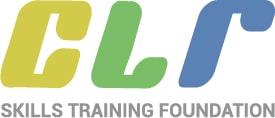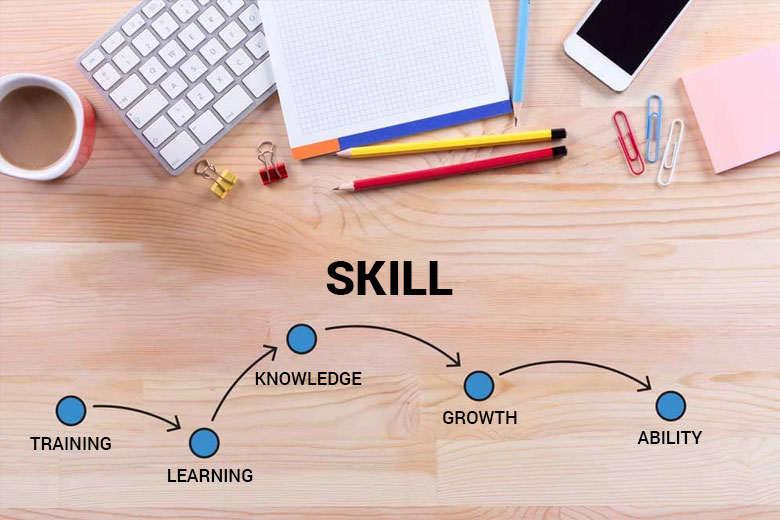Skill Development is the process in which you improve yourself and develop a skill set. Skill development adds an upper hand to your personal growth and also value for the organization. Skill building is an important way and part to self-development. It increases the efficacy and quality of your work. This in turn equally improves productivity and economic growth of any company, business or organization.
Seeing over the changes government is actively participating to take necessary steps towards skill enhancement programs. One such training foundation is CLR Skills.
- CLR skills are fully equipped to meet the youth skills development needs.
- CLR Skills aims to expertise youth with skills under the provision of NEEM Scheme which is a brainchild of Indian central government.
- It aims to provide industries with the skills and expert hands.
Why do Skills need to be enhanced?
Enhanced skills and knowledge are needed to set up an efficient workforce which is necessary for self-development and the development of an organization.
- It also aims at increasing the productivity of the organization.
- Skills and knowledge have a direct influence on the growth and development of an organization.
- Having skills is also an essential part of being able to meet the challenges of everyday life and growing accordingly with this ever-changing world.
There is still a very big lack of developed skills in India. The Government has been making efforts, especially in the recent past, for skill development to take place through various programmes nationwide. But this structure faces a lot of challenges. There is an important need for identifying ways through which we can counter any and all challenges that are a hindrance to the effective implementation of these programmes.
Is India focusing on Skill Development?
Skill development has emerged as a key strategy to realize the potential, productivity and efficiency of the workforce.A huge percentage of trained workers is a part of the informal sector. The skill training of an individual takes place through their own observation or a transfer of skills from a trainer to their apprentice. The percentage of the people who are formally trained in India is very low, at a mere 4.69% of the total workforce. On the contrary, compared to countries like Germany (75%) and that of South Korea (96%).
India has introduced the Recognition of prior learning (RPL) so as to facilitate an assessment and certification of the skills acquired by the individual through their own experience, observation, and self-learning in order to give them an edge in career advancement.
- The nodal agency for vocational training under the DGET, Director General of Employment &Training (DGET) is responsible for establishing standards, trade testing, formulating new policies and certifications. Thus enhancing the employment services.
- It is responsible for making new policies, making standards known, trade testing and certification, and all other matters connected to Skill Development and providing employment services.
- The National
Skill Development Council is a part of the Ministry of Skill Development and Entrepreneurship. It was set up under the Ministry of Finance to offer the feasibility gap funding and endorse private expertise initiatives.
What are the basic needs of Skills development programs in India?
Skills development requires:
- Investments
- Availability of real-time data
- A proper assessment, the outcomes and the interventions undertaken so that the future course can be planned or modified.
- A Reliable Education System that encompasses Skill enhancement:
Skill development in the formal education system of India does not place much importance on vocational training.
Skills development is in a state of disarray since the higher education system is itself struggling with issues related to scale and quality. There is also a gap between the formal education system of the country and work requirements, which leads to these challenges and lead to the skill gap.
A major action is required by the government so as to ensure that the Indian youth gets sustained employability in regard to their skills.
- Great Efforts: Efforts are required to skill the workforce, both in quantity and quality. There is a need for transforming the skill development ecosystem and molding it to suit the needs of both the industry and the citizens that take part in it. Efficient skills development is needed to suit the ecosystem to meet the future requirements.
Skills development are usually acquired through both formal and informal ways in India. It is imparted in both private sectors as well as public sectors.
What are the factors that govern Skill Development in India?
The ministries in India are actively taking necessary steps for adequately skilling Indian youth. New programs are running and initiated so far.
- Employability Factor:
- India is a country which is blessed with the huge labor force. As per a research, labor availability is expected to grow in India with a median age of 29 by 2020. In all these, only 10% of the Indian labor is trained which includes 3% of the formally trained labor while 7% are informally trained.
- According to a report of Indian Skill Report of 2016, it was found that only 37% of the employability skill test takes are employable.
- This is realized by the MDSE, Ministry of Skill development and entrepreneurship and several schemes and training modules are introduced to enhance skill development in the youth and untrained labors.
Limited capacity:
- The human and the physical infrastructure is inadequate in terms of the demand for skilled labor. This is due to the lack of training infrastructure.
- CLR Skills, recognized under the provision of NEEM scheme of government of India has taken necessary steps to train the youth and labors. CLR skills are providing them the opportunity to learn and earn, understanding the economic aspects of the labor.
- There is almost a need for 85,000 trainers which is far from the required demand.
Awareness and perception of people:
- Lack of awareness is one of the issues in India which govern the skill development.
- Skill development is considered as the last resort meant for the people who belong with poor academic grades in the Indian education system.
- Skill-based job prospectus is also viewed as the low profile jobs perceived with low dignity and provided with low wages and salaries. This changes the perception of people and they consider skill as the last option.
- Although improving skill-based job prospectus and skilling for the unorganized and un-formal sector is poor. The improvement of this prospectus is like a challenge in India and a major portion in India falls under the unorganized sector where it is difficult to convince the employers of the importance of occupational standard and job roles.
Investment Issues:
- Skill development in India largely depends on the government find or public-private ventures.
- Skill development is often viewed as a non-scalable model and lacks investment. Another thing that a fee-based model is not accepted by most of the people. Most of the people are unwilling to pay high fees for training modules. Also loaning is also perceived as a high risk when it comes to lending for skill development activities. This is because of poor returns on the investment.
- Institutions like CLR Skills have taken the initiative to introduce learn and earn while on the job training. This is offered with the advantage of apprenticeship. CLR skills provide skill-based training to the people of age 18 to 35, followed as per the guidelines by the PMKVY/SSC/NSDC. They duly train the workforce with proper soft skills, entrepreneurship development, service skills and non-technical skills. This helps the candidate with the overall development while personal skill enhancement.
Quality Factors:
- There is a great gap between the industrial requirement and skill imparted in educational and training institutes. In order to bridge this gap, considerable improvement is required for a quality training, especially to the mid-level skills. Like the handling of the technical machines. The institution or the training organizations often don’t have the machinery to train the students.
- The infrastructure, trainers, and curriculum also need to improve on the same prospect. The course curriculum is outdated, redundant and doesn’t meet the required standards.
- Good trainers are required for the real-time training of the people. The quality of training is affected due to the poor efforts towards re-training and skill improvement of trainers. There is a blur career prospectus as a career choice of being a trainer.
The training infrastructure also needs a great improvement with a pace of modernization and upgrading.
Mobility Concerns:
- The education system and qualification have an unconditional preference in India over vocational training courses. This is because the educational qualification is associated with better job prospects and employment opportunities.
- Even in the terms of the quality of work and pay scale. Equivalent recognition is required for the formal education as well as the vocational training in India.
- Also due to the vocational training course, student face eligibility restrictions as defined by the education system of India.
- NSQF, National Skill Qualification Framework have made necessary attempts for the recognition of establishing a credit system for skills, knowledge, and experience. NSFQ is also making necessary arrangements for skill training, technical education and job market for their placement.
How is Skills enhancement reaching out to the people?
Some of the major ways of skill development include government-run Industrial Training Institutes.
- The privately operated Industrial Training Centres and the specialized institutes for technical training. The private sector has also been recently participating and has been on the rise. But the public sector continues to dominate. Informal training also refers to the skills that an individual acquires on the job.
- One such Registered NEEM Agent is CLR Skills Training Foundation. NEEM Scheme is one of the highly appreciated start-ups of the Indian government with the collaboration of AICTE. NEEM helps the industries to develop the skilled manpower as per their business requirement & domain expertise.
- The government has launched several skills enhancement programs and schemes like the National Skill Development Mission.
- Some of the organizations like National Skill Development Agency (NSDA), National Skill Development Fund (NSDF), Sector Skill Councils (SSC), etc are also working for skill enhancement in India under the provision of Ministry of Skill Development and Entrepreneurship.
Some features of Skill’s development programs:
- Mobility: The work-based and school-based learning imparts more practical skills. This provides far more flexibility to people in terms of choosing to skill, choice of course and career options.
- Flexibility: Flexibility is another characteristic of skill development initiatives. Practical training ensures the stability and flexibility in work and education.
- Industrial Linkage: Industries are in need of great demand for skilled labor. Industrial jobs will create more awareness and provide skilled labor with a good job prospectus.






